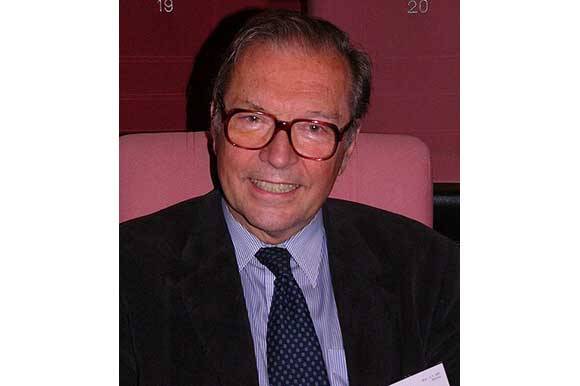Zanussi talked to FNE exclusively about European coproduction, the challenges for the cinema and his plans for the future.
FNE: You have been awarded the Lifetime Achievement Award Polish Eagle. What does it mean to you to be recognised by your professional peers?
Krzysztof Zanussi: It matters a great deal because my relationship with my colleagues is different. It is always a relationship based on competition. That is not the case when I am awarded in other countries. I do hope that this award doesn't mean that my peers don't consider me as a dangerous rival anymore.
FNE: You are a European artist who has directed in theaters in Milan, Palermo, Bonn, Basel and Rome, and whose films have been coproduced with foreign partners. Why do you look for support outside of Poland?
Krzysztof Zanussi: When it comes to looking for partners outside of Poland I am somewhat of a pioneer, as I started doing this in the times of communist Polish People's Republic. There are many benefits to such projects, the coproduction allows us to reach into other industries and other audiences. Each producer is looking for distribution in their region, which multiplies our chances.
We also share the financial risks, but it always needs to be based on merit. A coproduction is not an easy endeavor, as we have our differences, even in countries that are geographically and culturally close. We have a different mentality, knowledge or even sense of humor. Each script needs to be tested to see if it fulfills the needs of every market and can be distributed in all the countries involved in the coproduction.
FNE: Are coproductions a way for European cinema to compete with Hollywood?
Krzysztof Zanussi: We want to compete, but in a different category. In the category of films that we want to make, Hollywood is quite helpless. Bergman would never make films in Hollywood because he wouldn't want to. Hollywood is not a place for serious and ambitious films, they do happen there, but only as an exception to the rule. Most of the time Hollywood filmmakers are focused on producing entertainment and this genre is not taken seriously in Europe.
FNE: The dominant themes in your cinema, which you also include in your latest film Ether, are freedom, enslavement, moral choices of men, relationships between man and the absolute, love, happiness and death. These are topics at the heart of the humanities. What do you think are the humanistic challenges of the new century cinema?
Krzysztof Zanussi: The cinema reflects the challenges brought by our civilisation, which presently is facing great changes. Through the ages the humanity's development was based on greed, a value that even recently was named by USA's President Donald Trump as our main motivator. And now it is losing its meaning as it is hard to be greedy in developed countries.
Many people step away from greed, because why have three rooms when two is just enough, why do you need two cars when you can have just one or even rent a car. This is a very interesting turn in the history of the human kind as we have a biological need to compete, but now we need to change the competition. It is impossible for everyone to fulfill their material dreams, that is why we turn to virtual reality.
There is also a question of trans-humanism and the temptation to create a better human being with better genes and technological improvements. This would mean that we are a stepping stone in the evolution, Neanderthals to some new super-homo sapiens and this is a very fascinating idea for the future.
FNE: What is your dream project? What are your production plans for the future?
Krzysztof Zanussi: I have several dream projects, but I try and work of what is possible in reality. I am currently in development with a new drama about a mathematician, set in contemporary times, about a man who lost value in material things, but his life didn't lose its meaning at all.




















